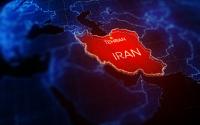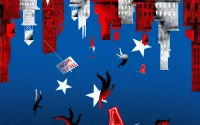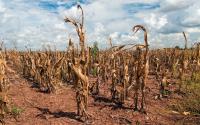7 January 2008Matthew Weaver, David Batty
The Kenyan president, Mwai Kibaki, today called for parliament to convene next week as opposition parties said violence triggered by his disputed re-election has claimed up to 1,000 lives.
In a bid to prevent more bloodshed, opposition leaders have cancelled another rally and, in a softening of his stance towards Kibaki, the opposition candidate, Raila Odinga, said he wanted to give mediation a chance.
"We are now assured that the mediation process is about to start. We are therefore informing our supporters countrywide that there will be no public rallies," he said at a press conference.
"We want the mediation to take place in a peaceful environment, that is why the rallies have been cancelled."
Odinga said African Union mediation to end the post-election turmoil could start on Wednesday.
He told Reuters that the union's chairman, John Kufuor, the president of Ghana, had received an invitation from Kibaki to chair mediation talks and would arrive tomorrow night.
"He will be ready to begin chairing the talks on Wednesday," said Odinga, who described the development as a "major, major breakthrough".
The opposition candidate said that "closer to a thousand", people could have died in the violence since the disputed election.
Kibaki responded by calling for the new parliament, which is dominated by Odinga's supporters, to meet on January 15.
Odinga cancelled the rally after meeting the US envoy, Jendayi Frazer. The Kenyan government said the proposed demonstrations were illegal and could provoke violence.
Kufuor had been due to arrive in Nairobi last week but stayed away after Odinga said he was not willing to talk to Kibaki unless he acknowledged that he had lost the election.
Yesterday he said he was willing to drop that demand, but also proposed that an interim government be set up to hold new elections. Kibaki has said he is willing to form a government of national unity, but that only the courts can overturn his election victory.
Today, the Ministry of Special Programmes announced that, after more than a week of violence, 486 people had been killed and 255,000 people displaced. The toll was compiled by a special committee of humanitarian services set up by the government that toured areas most affected by riots and protests.
But Kenyan police claimed that at least 600 had died, according to AFP. "We have at least 600 dead... some bodies are still in the bushes where fighting occurred," an unnamed police official told the agency. Until today the official death toll had stood at 350.
An anti-Kibaki rally had been scheduled for tomorrow, after plans for a similar protest were postponed last Thursday when demonstrators were dispersed with teargas and water cannon. The government had claimed that a rally would ignite "tension and hooliganism".
Odinga and his supporters claim the election was stolen. European monitors say the poll was "flawed". Anger at Kibaki's victory sparked tribal rivalry and claims and counter claims from both main parties that their opponents are to blame for ethnic cleansing.
The United Nations-backed International Conference on the Great Lakes Region said the killings were "akin to ethnic cleansing and genocide".
Human rights groups accused the police of excessive force and unjustified killings in the crisis, but the police claim they have not shot anyone.
In the western Rift valley, Odinga's stronghold, thousands of Kikuyus, Kibaki's tribe, have been fleeing their homes. Later today, the foreign secretary, David Miliband, is due to make a Commons statement about the situation in Kenya.






